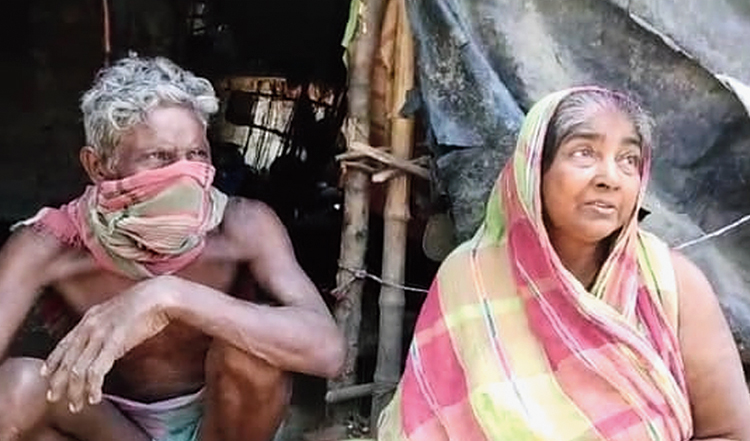

Close to 2,500 families in the Sunderbans, robbed of a day’s full meal, will get food for at least a fortnight.
The German consulate in Calcutta will give approximately Rs 28 lakh to Mukti, an NGO in the Sunderbans that has around 15,000 families under its wings.
Mukti works in five blocks in the Sunderbans — Patharpratima, Mathurapur I, Mathurapur II, Joynagar II and Kultali.
The Telegraph had on April 17 reported how a third of these families were staring at starvation because of the lockdown forced by the novel coronavirus.
A survey in these blocks had revealed at least 5,000 families had little or nothing to eat. “The families had received between 2kg and 4kg of rice as free ration. That did not last long because of the several mouths that had to be fed,” Sankar Halder, the founder of Mukti, said on Saturday.
“Supporting the most vulnerable with food is the requirement of the hour. We have been providing the needy in Calcutta with food. Our federal foreign office has now sanctioned close to Rs 3 million; so, we will be able to distribute food to thousands of people living in the Sunderbans,” German deputy consul general Jurgen Thomas Schrod said. “We have asked the NGO to start procuring the stuff they need.”
He said the formalities had been completed and the money should reach Mukti in a couple of days.
“We will provide packs of essential items to close to 2,500 families with the money received from the German consulate,” Halder said.
Each pack will have 9kg rice, 7kg potatoes, 3kg dal, a litre of cooking oil, 1kg salt, two soap bars, and four cotton masks, a Mukti volunteer said. For a family of four-five people, the items should last a fortnight, he said.
Before the Germans stepped in, a string of Calcutta-based organisations led by Kolkata Gives had donated money that provided around 2,000 families with food.
Mukti, founded in 2003, now works with ABOUT 7,000 farmers who sell a part of their produce through the NGO’s online channel.
The NGO has a hub in Garia. Every morning, truckloads of organic vegetables arrive there from the Sunderbans. Delivery men on two-wheelers take the vegetables to more than 150 housing complexes in the city.
“Before the lockdown, we catered to around 5,000 families. Now, the number has come down to roughly 2,000 families,” a volunteer who oversees the NGO’s delivery channel said.
“The home delivery channel, which accounts for around 10 per cent of income for farmers, is the only avenue that is still somewhat operational,” Halder said.
He said the German help was “godsend”. The people surveyed by Mukti constitutes a small percentage of the total number of people without food in the Sunderbans, he said.
The main source of earning for the farmers is the wholesale market. Sunderbans supplies vegetables to large parts of Calcutta. Traders from Garia, Sonarpur and adjoining areas visit the wholesale markets in the Sunderbans every day. Most of them take suburban trains from Sealdah. Some use private vehicles as well. The stuff bought from the wholesale market is sold at all the big markets in Calcutta.
The lockdown has crippled this chain, primarily because of lack of transport options. “The big wholesale market in Raidighi, for example, has been running for just a couple of hours. But only a handful of farmers have been turning up. Buyers from Calcutta are mostly absent because trains have stopped,” Halder said.
Earlier this month, the German consulate had tied up with two city-based organisations to provide the hungry with food and frontline health workers with protective gears.











